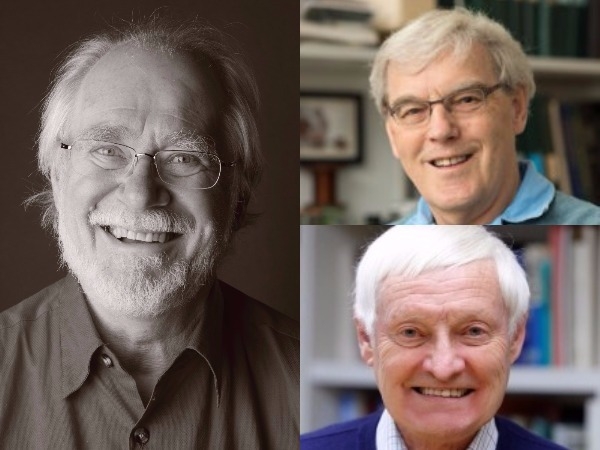Nobel Prize 2017 awarded to Jacques Dubochet, Joachim Frank and Richard Henderson in chemistry
Stockholm, October 4: The Royal Swedish Academy of Sciences on Wednesday awarded the 2017 Nobel Prize in Chemistry to Jacques Dubochet from University of Lausanne, Switzerland, Joachim Frank from Columbia University, New York, USA and Richard Henderson from MRC Laboratory of Molecular Biology, Cambridge, UK for developing cryo-electron microscopy for the high-resolution structure determination of biomolecules in solution.

By developing the microscopy the imaging of molecules has been simplified and improved because the available technology has had difficulty generating images of much of life’s molecular machinery. Due to Cryo-electron microscopy changes the researchers can freeze biochemicals mid-movement and visualize the processes which were impossible previously.
Between 1901 and 2017, 109 Nobel Prizes have been awarded in Chemistry. Only one Laureate has received 63 Chemistry Prizes. Four women have been awarded the Chemistry Prize so far. Frederick Sanger the only person who has been awarded the Chemistry Prize twice, in 1958 and in 1980. 35 years was the age of the youngest Chemistry Laureate ever, Frédéric Joliot, who was awarded the Nobel Prize in 1935. At the age of 35, Frederic Joliot was the youngest Chemistry Laureate ever who was awarded the Nobel Prize in 1935. While at the age of 85, John B. Fenn was the oldest Chemistry Laureate who was awarded the chemistry prize in 2002.
For the discovery of molecular mechanisms controlling the circadian rhythm the Nobel Prize was awarded to Jeffrey C. Hall, Michael Rosbash and Michael W. Young in Physiology or Medicine 2017 on 2nd October 2017. While for decisive contributions to the LIGO detector and the observation of gravitational waves Nobel Prize in Physics was divided, one half awarded to Rainer Weiss, the other half jointly to Barry C. Barish and Kip S. Thorne on 3rd October 2017. On Thursday, the Nobel Prize will be awarded on Literature.
The will signed on November 27, 1895, in Paris by Alfred Nobel, the founder of Nobel Prize stated that the bulk of his fortune should be divided into five parts and to be used for Prizes in Physics, Chemistry, Physiology or Medicine, Literature and Peace to "those who, during the preceding year, shall have conferred the greatest benefit to mankind."